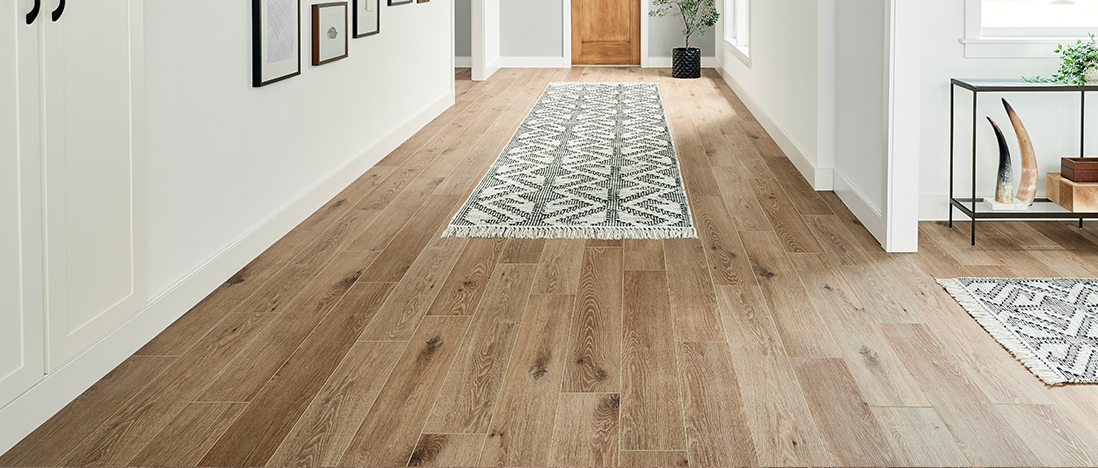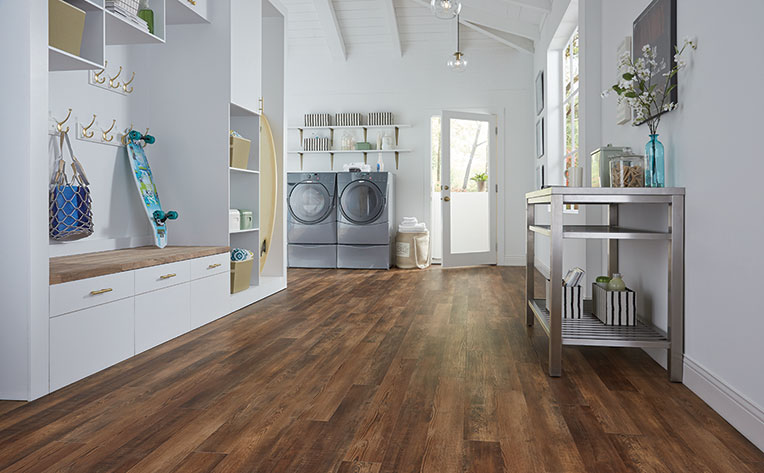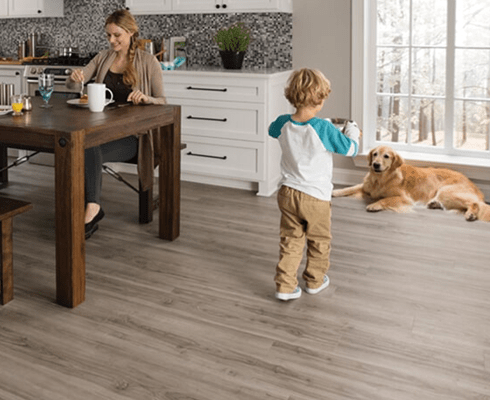Vinyl flooring is a popular option for homeowners who are looking to replace their floors. Vinyl has many advantages over wood, laminate, and carpet. This blog post will discuss the pros and cons of vinyl flooring so that you can make an informed decision about what type of floor would work best in your home! But how do you make a decision about whether vinyl flooring is right for your lifestyle? Let’s find out!
What Is Vinyl Flooring?
Vinyl flooring is a type of resilient and durable hard surface material. It can be used in both residential and commercial settings as well as rental properties, apartments, offices, and more. Vinyl flooring comes with many benefits, including being resistant to wear and tear from heavy foot traffic or spills such as water or oil stains.

What Are The Pros of Vinyl Flooring?
1) Noise Reduction
One of the best things about vinyl flooring is that it reduces noise. When you are trying to sleep, for example, and your neighbor starts banging on a nearby wall or yelling outside with their headphones in so they can’t hear themselves think – being able to get away from all this through soundproofed floors goes a long way towards having a good night.
2) Resistant to Mold
Vinyl is resistant to mold because of its composition. It’s a non-porous substance, so it doesn’t trap moisture in the same way as other types of flooring do. This means that you will be able to breathe easier and spend more time on your vinyl floors without feeling like you need an inhaler.
3) Easy to Clean
Vinyl floors are very easy to clean, and this makes them a great choice for people with allergies or asthma. The best thing about vinyl is that it doesn’t trap dust the way many other flooring types do – so you’ll have fewer allergens floating around in your home. And even if they do get dirty, just wipe them down with a damp cloth, and you’ll be all set.

What Are The Cons of Vinyl Flooring?
1) Vinyl is an oil-based product
One of the cons to vinyl flooring is that it can be hazardous for anyone with asthma or allergies. The VOCs (volatile organic compounds) in the material is a common allergen, and they release strong odors when heated, which can lead to respiratory problems such as congestion, coughing, or difficulty breathing. Vinyl also off-gasses formaldehyde, which is a carcinogen that can lead to asthma or cancer.
2) Vinyl is highly flammable
The high chemical content in vinyl flooring, such as linseed oil or polyvinyl chloride (PVC), makes it more susceptible to heat and flame. If you have an open fire burning near your home, the flames can easily spread onto your floors which may lead to a house fire that could leave you homeless.
Conclusion
In conclusion, vinyl flooring is a versatile product with many pros and only two major cons. Although the cost is higher than most of its other competitors, it will not require any maintenance for years on end. Vinyl’s low-maintenance feature earns it our top spot in this list of products!

